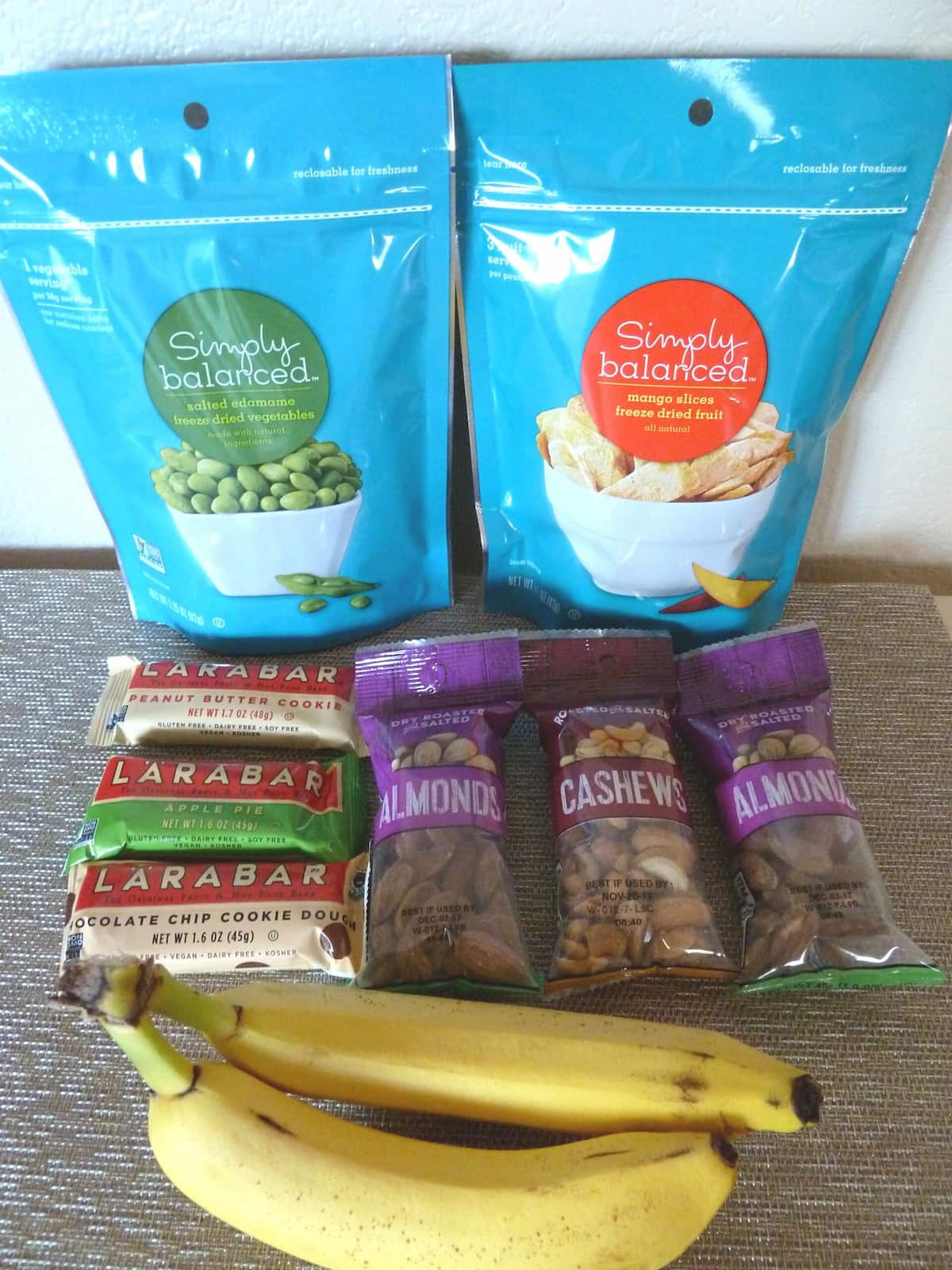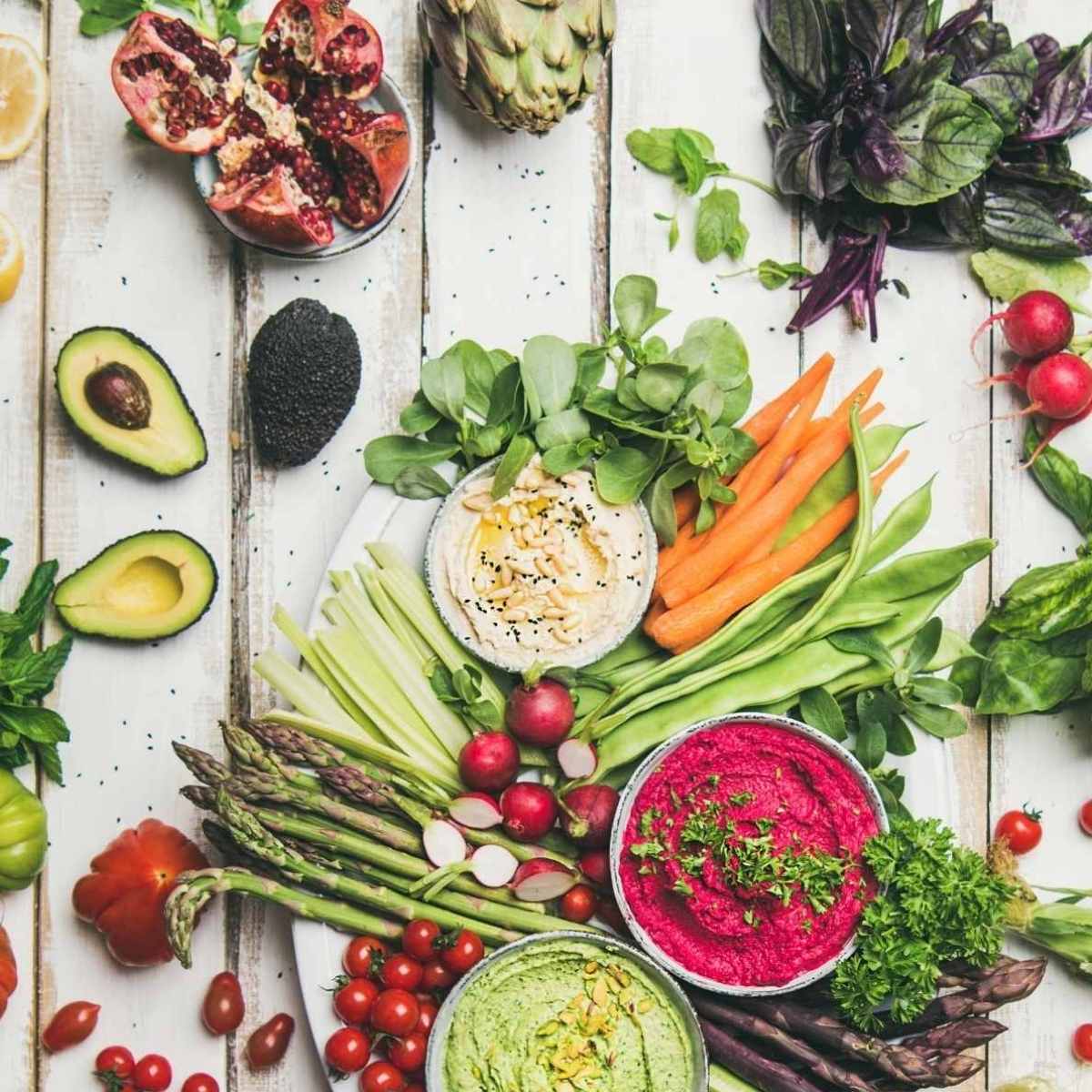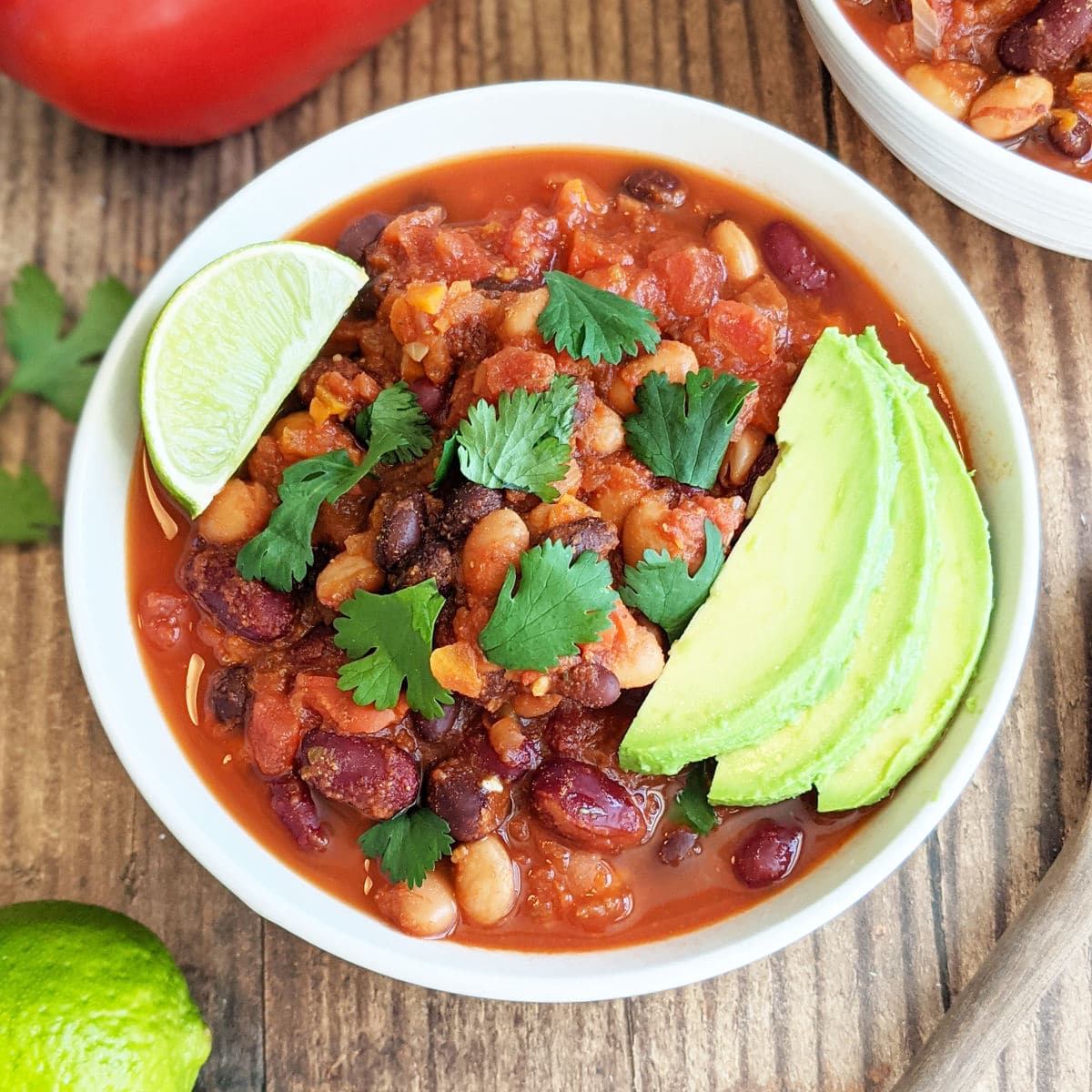Curious about the vegan diet and lifestyle? Here are the key vegan facts and statistics, including health benefits, environmental impacts, animal welfare, and general vegan statistics to answer all your burning questions!
This post may contain affiliate links. Read my policy page for more information.

In recent years, the vegan lifestyle has emerged as more than just a dietary choice—it has become a global movement with profound implications for our health, animal welfare, and the environment. As more individuals adopt a vegan diet, the impact of this shift is increasingly evident in compelling statistics that underscore the transformative power of this conscious choice. From substantial health benefits to the alleviation of animal suffering and the reduction of environmental harm, the rise of veganism has given rise to a plethora of positive outcomes.
In this article, we explore an array of statistics that shed light on the multifaceted advantages of embracing a vegan diet and lifestyle, urging us all to consider the profound effects our choices can have on ourselves, the lives of animals, and the preservation of our planet.
What is Veganism?
The Vegan Society, a UK-based non-profit and considered the world’s first vegan organization, defines veganism as “…a philosophy and way of living which seeks to exclude—as far as is possible and practicable—all forms of exploitation of, and cruelty to, animals for food, clothing or any other purpose”.
As veganism gains traction worldwide, it’s important to note that it’s more than a dietary preference but a lifestyle choice. At its core, veganism advocates for the complete avoidance of animal products, encompassing not only food but also various aspects of daily life, including clothing, cosmetics, and entertainment choices.
Veganism is grounded in compassion and respect for all living beings. Those who embrace this lifestyle consciously abstain from the use of animals for food, clothing, or any other purpose that involves exploitation or harm to animals. This ethical framework extends beyond personal choices to encompass a broader commitment to reducing harm and promoting the well-being of animals.
While the dietary aspect of veganism is often the most visible, with individuals adopting plant-based diets free from meat, dairy, eggs, and other animal-derived ingredients, it’s important to recognize that veganism transcends mere dietary restrictions. Vegans actively seek out alternatives to traditional animal products, opting for plant-based alternatives instead. This may involve avoiding products tested on animals, opting for cruelty-free cosmetics, eschewing clothing made from animal skins or fur, and supporting entertainment options that do not exploit animals for human entertainment.
Veganism represents a holistic approach to living that seeks to minimize harm to animals, protect the environment, and promote overall well-being.
Vegan Health Facts
A vegan diet offers numerous health benefits, supported by scientific research and endorsed by many health organizations. Here are several key facts highlighting the positive impact of a vegan diet on health:

- Reduced Risk of Heart Disease: Studies have shown that individuals following a vegan diet have a lower risk of developing heart disease compared to those who consume animal products. This is attributed to the lower intake of saturated fat and cholesterol in plant-based diets.
- Lower Blood Pressure: Research indicates that vegan diets may lead to lower blood pressure levels, reducing the risk of hypertension and related cardiovascular complications.
- Lower Risk of Certain Cancers: Some studies suggest that a vegan diet is associated with a reduced risk of certain types of cancer, including colon, breast, and prostate cancers. The abundance of fruits, vegetables, and fiber in plant-based diets may contribute to this protective effect.
- Weight Management: Vegan diets are often lower in calories and saturated fats, making them conducive to weight management, particularly weight loss, and potentially reducing the risk of obesity and related health conditions.
- Improved Blood Sugar Control: Vegan diets rich in whole grains, legumes, fruits, and vegetables may help improve insulin sensitivity and glycemic control, lowering the risk of type 2 diabetes and supporting diabetes management.
- Lower LDL Cholesterol Levels: Vegan diets tend to be low in dietary cholesterol, leading to lower levels of LDL (bad) cholesterol and a reduced risk of atherosclerosis and cardiovascular disease.
- Increased Fiber Intake: Plant-based diets are naturally high in dietary fiber, which promotes digestive health, regulates bowel movements, and may reduce the risk of conditions such as constipation, diverticulitis, and colorectal cancer.
- Reduced Inflammation: Some research suggests that vegan diets may help reduce systemic inflammation in the body, which is associated with chronic diseases such as heart disease, diabetes, and arthritis.
Vegan Environmental Facts
Veganism is not only beneficial for personal health but also plays a crucial role in mitigating environmental degradation and promoting sustainability. Here are several facts and statistics highlighting the positive environmental impact of adopting a vegan lifestyle.

Eating vegan reduces your carbon footprint. Animal agriculture is a significant contributor to greenhouse gas emissions, particularly methane and nitrous oxide. By abstaining from animal products, vegans can significantly reduce their carbon footprint and mitigate climate change. Researchers found that vegans contribute 75% less greenhouse gases than meat-eaters.
1,800 gallons of water are used to produce one pound of beef. Animal agriculture is highly water-intensive, requiring vast amounts of water for feed production, drinking, and sanitation. On the other hand, producing one pound of tofu requires only about 244 gallons. Choosing plant-based foods over animal products significantly reduces water usage.
1,000 gallons of water are needed to produce 1 gallon of milk. By opting for plant-based foods, individuals can conserve water resources and alleviate water scarcity.
Animal agriculture uses one-third of the earth’s ice-free land. Livestock farming necessitates extensive land use for grazing and feed production, leading to deforestation, habitat destruction, and biodiversity loss. The land required for growing livestock feed is also immense.
One gram of protein from beef or lamb requires 100 times as much land to produce as it does peas or tofu. Plant-based diets are more land-efficient, as they require fewer resources to produce the same amount of food. For example, it takes much less land to grow crops for direct human consumption than to raise animals for meat because you also require land to grow feed for the animals.

91% of Amazon deforestation is caused by animal agriculture. Large-scale deforestation, particularly in regions like the Amazon rainforest, is driven primarily by the expansion of cattle ranching and soy cultivation for animal feed.
A dairy-farm with 2,500 cattle produces as much waste as a city of 411,000 people according to the EPA. Animal agriculture contributes to water and air pollution through runoff of animal waste, chemical fertilizers, and pesticides. By reducing reliance on animal farming, vegans can minimize pollution and promote cleaner water and air quality.
At the current rate, we could see fish-less oceans by 2048. Overfishing and depletion of marine resources pose significant threats to ocean ecosystems and biodiversity. By reducing seafood consumption, vegans help alleviate pressure on fisheries and promote marine conservation efforts.

Animal agriculture is the leading cause of ocean dead zones and species extinction. Animal agriculture contributes to nutrient runoff and eutrophication of water bodies, leading to harmful algal blooms and aquatic ecosystem degradation.
By adopting a vegan lifestyle, individuals can contribute to positive environmental change, promote resource conservation, and support a more sustainable future for our planet and future generations.
Animal Facts
Billions of animals suffer and lose their lives every year for food or dairy. By going vegan you can save hundreds of lives a year and make a significant impact.

Over 90 billion animals are killed each year for food. That’s over 250 million a day. Our World in Data breaks it down further: 900,000 cows, 1.4 million goats, 1.7 million sheep, 3.8 million pigs, 12 million ducks, 202 million chickens, and millions of fish are killed every single day.
Vegans save hundreds of animal lives every year. According to The Vegan Calculator, you can save at least one animal’s life per day. That’s 365 lives or more after one year!
Cows can live for 20 years or more but are usually slaughtered around 18 months old. Calves bred for veal are slaughtered around 1-24 weeks. Dairy cows are slaughtered around 4 years of age when they stop producing milk.
Pigs can live for 10-12 years and are typically slaughtered between 3 to 5 years old.
Chickens can live up to 8 years and are typically slaughtered for meat around 5-7 weeks old. Chickens bred for egg-laying are slaughtered around 18 months old. Male chickens are usually killed at 1 day old.
Vegan Diet Facts
Understanding the fundamentals of a vegan diet is essential for those considering or already embracing plant-based eating. It is not to be confused with a vegetarian diet which does include animal products. And it has nothing to do with being gluten-free (another common confusion). Here are some key facts about veganism and its dietary aspects:
- Plant-Based Foundation: At its core, a vegan diet is centered around plant-derived foods, including fruits, vegetables, grains, legumes, nuts, seeds, and plant-based oils. These nutrient-rich foods form the basis of a balanced and healthful vegan diet.
- Exclusion of Animal Products: The defining feature of a vegan diet is the exclusion of all animal products, including meat, poultry, fish, dairy, eggs, honey, and other animal-derived ingredients.
- Focus on Whole Foods: While there are many processed vegan foods available, such as vegan meats and dairy alternatives, a healthful vegan diet emphasizes whole, minimally processed foods to maximize nutrient intake and promote overall well-being.
- Nutrient Density: Vegan diets tend to be rich in essential nutrients, including fiber, vitamins, minerals, and antioxidants, which are abundant in plant-based foods. Consuming a variety of fruits, vegetables, grains, and legumes ensures adequate intake of these vital nutrients and ups the nutrient density.
- Protein Sources: Contrary to common misconceptions, plant-based diets provide ample protein through sources such as legumes (beans, lentils, chickpeas), tofu, tempeh, seitan, nuts, seeds, and grains. Combining different plant protein sources throughout the day ensures sufficient intake of all essential amino acids.
- Calcium Absorption: While dairy products are often touted as the primary source of calcium, plant-based sources such as fortified plant milks, tofu, leafy greens (e.g., kale, collard greens), and almonds can provide adequate calcium. Consuming these foods alongside sources of vitamin D and magnesium enhances calcium absorption.
- Iron Bioavailability: Plant-based sources of iron include legumes, tofu, spinach, and fortified cereals. Plant-based iron (non-heme iron) is less readily absorbed than heme iron from animal sources. However, pairing iron-rich plant foods with vitamin C-rich foods (e.g., citrus fruits, bell peppers) can enhance iron absorption. Cooking in cast iron cookware can also boost iron intake.
- B12 Supplementation: Vitamin B12 is primarily found in animal products, so vegans must obtain it through fortified foods (e.g., plant milks, nutritional yeast, breakfast cereals) or supplements. Regular B12 supplementation is crucial for preventing deficiency and maintaining nerve and blood cell health.
- Omega-3 Fatty Acids: Plant-based sources of omega-3 fatty acids include flaxseeds, chia seeds, hemp seeds, walnuts, and algae-derived supplements. Incorporating these foods into the diet helps maintain optimal omega-3 levels, which are essential for brain health.
- Vegan Food is Diverse: The vegan diet encompasses a wide range of culinary traditions from around the world, with endless possibilities for delicious and satisfying meals. From Mediterranean and Asian cuisines to Latin American and Middle Eastern dishes, veganism celebrates culinary diversity and creativity.
Understanding these facts about the vegan diet is necessary to make informed dietary choices, ensuring you meet your needs while embracing a compassionate and sustainable way of eating.
Vegan Myths and Misconceptions
Despite the growing popularity and acceptance of veganism, several myths and misconceptions persist, often deterring individuals from exploring or embracing a plant-based lifestyle. We’re going to debunk some of the most common misconceptions surrounding veganism:
Myth: Vegan Diets Lack Protein. One of the most prevalent myths is that vegan diets are deficient in protein. In reality, plant-based foods such as legumes, tofu, tempeh, seitan, nuts, seeds, and grains are rich sources of protein. With careful planning, vegans can easily meet their protein requirements.
Myth: Vegan Diets Are Nutritionally Deficient. Another misconception is that vegan diets are inherently lacking in essential nutrients. While it’s true that certain nutrients like vitamin B12, iron, calcium, and omega-3 fatty acids require special attention, these nutrients can be obtained through fortified foods, supplements, and a well-balanced plant-based diet.
Myth: Veganism Is Expensive. Contrary to popular belief, vegan diets can be affordable and cost-effective. Staples such as grains, legumes, fruits, and vegetables are often more affordable than animal products. Additionally, plant-based protein sources like beans and lentils are typically less expensive than meat.
Myth: Vegan Diets Are Bland and Boring. Some people believe that vegan diets consist of tasteless and unexciting food options. However, the truth is that vegan cuisine is diverse, flavorful, and creative. With the abundance of herbs, spices, condiments, and plant-based alternatives available, vegans can enjoy a wide variety of delicious meals.
Myth: Veganism Is Inconvenient. Another common misconception is that being vegan is inconvenient, especially when dining out or traveling. While it may require some extra effort initially, many restaurants and food establishments offer vegan options, and vegan-friendly products are increasingly accessible in grocery stores and online.
Myth: Vegan Diets Are Not Suitable for Athletes. Some people believe that vegan diets are inadequate for meeting the high energy and nutrient demands of athletes. However, numerous vegan athletes excel in various sports, proving that plant-based diets can provide the necessary nutrients for optimal performance and recovery. See the vegan athletes section below and check out the documentary The Game Changers for more inspiration.
Myth: Veganism Is All or Nothing. There’s a misconception that one must adhere strictly to veganism or not at all. In reality, adopting a flexible approach, such as incorporating more plant-based meals into one’s diet or gradually transitioning to veganism, can still yield significant health and environmental benefits.
Myth: Veganism Is a Fad. While veganism has gained momentum in recent years, it’s far from being a passing trend. As more people become aware of the ethical, environmental, and health implications of their food choices, veganism continues to evolve into a mainstream movement with enduring significance.
Myth: Veganism Is All About Sacrifice. Some perceive veganism as a lifestyle of deprivation and sacrifice. However, many vegans find fulfillment, joy, and a sense of purpose in aligning their actions with their values of compassion, sustainability, and ethical living.
Most Vegan-Friendly Countries
The vegan lifestyle and vegan diet have become a global movement, with certain countries leading the way in offering a wide array of vegan-friendly options. From bustling cities to serene countryside locales, here are some of the best vegan-friendly countries in the world:
- United Kingdom: The UK boasts a thriving vegan scene, with London in particular being a hotspot for plant-based dining. From vegan pubs and cafes to fine dining restaurants and street food markets, there’s no shortage of vegan options to explore. There’s an estimated 2.5 million vegans in the UK! That’s 4.7 percent of the adult population.
- Australia: Melbourne and Sydney are leading the charge in Australia’s growing vegan movement, with a multitude of vegan cafes, restaurants, and markets catering to the plant-based community.
- Israel: Tel Aviv has emerged as a vegan mecca in the Middle East, with a plethora of vegan restaurants and cafes catering to locals and tourists alike. The city hosts an annual vegan festival and boasts a vibrant vegan community. Over 5% of Israel’s population identifies as vegan.
- New Zealand: Ranking 4th in the world for veganism, searches for veganism in New Zealand are increasing. Its close proximity to Australia could be an influence.
- Germany: Germany is thought to be the country with the largest vegetarian population, with Berlin often cited as one of the most vegan-friendly cities in Europe. The capital city is home to numerous vegan restaurants, food trucks, and vegan-friendly supermarkets.
- Sweden: Sweden has embraced veganism with open arms, with Stockholm leading the way as a vegan paradise. The city features a wide range of vegan eateries, health food stores, and even vegan grocery delivery services.

Vegan Athletes
Several high-profile athletes have embraced a vegan lifestyle and have achieved success while following plant-based diets. Here are some notable vegan athletes from various sports:
- Novak Djokovic: Serbian tennis champion Novak Djokovic, ranked among the greatest tennis players of all time, follows a plant-based diet for improved health and performance.
- Lewis Hamilton: British Formula One racing driver Lewis Hamilton, a seven-time Formula One World Champion, adopted a vegan lifestyle for ethical reasons and to optimize his health and fitness.
- Serena Williams: American tennis legend Serena Williams, with 23 Grand Slam singles titles to her name, follows a mostly plant-based diet to support her athletic performance and overall well-being.
- Venus Williams: Influenced by her sister, Serena, this equally impressive American professional tennis player with 7 Grand Slam singles titles to her name has been eating vegan for over a decade.
- Scott Jurek: Ultra-marathon runner Scott Jurek, known for his exceptional endurance and multiple victories in ultramarathons, credits his plant-based diet for his athletic success and recovery.
- Hannah Teter: American snowboarder and Olympic gold medalist Hannah Teter is a vocal advocate for veganism and attributes her energy, strength, and resilience to her plant-based diet.
- Colin Kaepernick: Former NFL quarterback adopted a vegan diet in 2015 after a series of injuries. He was recently name one of the 35 strongest men of the last 35 years by Men’s Health.
- Patrik Baboumian: German strongman competitor Patrik Baboumian, known for his incredible strength and world records in powerlifting and strongman competitions, is a passionate advocate for veganism and animal rights.
- Tia Blanco: Professional surfer Tia Blanco, a two-time World Surfing Games champion, credits her plant-based diet for her energy, endurance, and recovery on the waves.
- Nate Diaz: Mixed martial artist Nate Diaz, known for his success in the UFC, follows a plant-based diet and promotes veganism as part of his training regimen.
- Morgan Mitchell: Australian track and field athlete Morgan Mitchell, specializing in the 400 meters, embraces a vegan lifestyle and emphasizes the importance of plant-based nutrition for peak athletic performance.
- Fiona Oakes: British long-distance runner Fiona Oakes, known for her numerous marathon and ultramarathon victories, is a vegan athlete who advocates for animal rights and ethical veganism.
These athletes serve as inspiring examples of the potential of plant-based diets to fuel athletic excellence, challenge stereotypes about veganism and athleticism, and promote compassion towards animals and the environment.
Vegan Celebrities
Several celebrities have adopted vegan lifestyles for various reasons, including health, environmental sustainability, and animal welfare. Here are some notable celebrities who are vegans:
- Beyoncé
- Ariana Grande
- Bille Eilish
- Elliot Page
- Joaquin Phoenix
- Natalie Portman
- Woody Harrelson
- Jaden Smith
- Bryan Adams
- Lizzo
- Ricky Gervais
- Pamela Anderson
- Peter Dinklage
- Sia Furler
- Mayim Bialik
- Alicia Silverstone
- Rob Zombie
- Travis Barker
- Halle Bailey
- Jon Stewart
Future Outlook
The future is promising, with advancements in plant-based technology, legislative initiatives, and the potential to revolutionize global food systems. As plant-based alternatives become more accessible, veganism is poised to continue its upward trajectory.
With its ethical, environmental, and health benefits, veganism has the potential to drive positive change on a global scale, promoting sustainability, compassion, and equity in food production and consumption. As we look ahead, the growing momentum of veganism offers hope for a more ethical, sustainable, and inclusive future for all beings.






